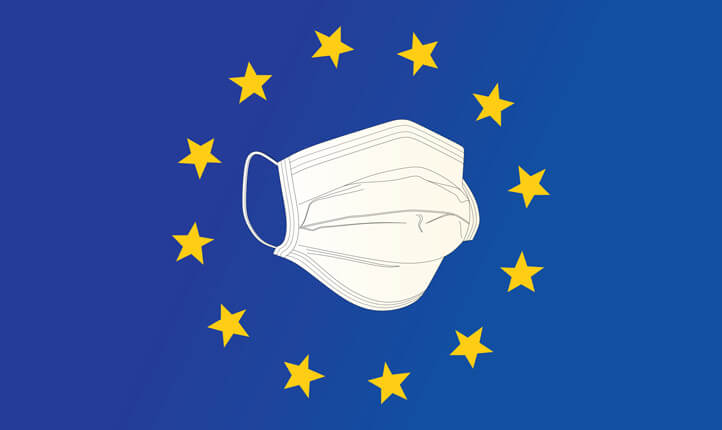By Lauren Buckner
As several pockets of the EU reintroduce lockdown measures to fight rising Covid cases, all eyes are on Germany to see if they will follow suit. As the ‘engine room’ of the EU German Health Minister Jens Spahn reiterated that a full lockdown which would include the vaccinated can not be ruled out while the Southern State of Bavaria cancelled all Christmas markets and advised lockdown measures will apply to any districts with a seven day infection rate of over 1000 to 100,000 population.
As the World Health Organisation (WHO) decreed the EU the epicentre of Covid once more the Austrian government became the first to make it illegal to be unvaccinated against Covid by February 2022, a controversial move but one they deemed necessary after case numbers spiralled. At the beginning of last week they had announced lockdown measures for the unvaccinated before moving to a full lockdown. Riots have broken out in Rotterdam as a result of new lockdown measures as the general public outrage against further loss of freedoms as Netherlands reintroduced an 8pm curfew and an increased use of Covid passes to use public venues. The WHO have declared that they expect a further 500,000 deaths in the EU from Covid between now and March.
It is thought that the EU are seeing such a spike in cases due to relaxing lockdown measures later than the UK, due to their slower introduction of vaccines and the subsequent slower uptake by EU citizens.
Meanwhile, the UK continues to record high case rates of around 40,000+ per day but the government continues to take a rather gung-ho approach to the numbers while death rates remain relatively low and continue to rule out another full lockdown and instead hold their ‘Plan B’ of reintroducing masks and a working from home directive as their solution should the situation continue to spiral. Almost 14 million adults have now received their booster jab in the UK and Sajid Javid has hinted that the roll out will soon be available to all adults. The booster has also now been added to the NHS Covid pass system and is likely to be particularly relevant to our readers who travel internationally.
This has helped the Pound increase in value versus the Euro to a fresh 20month high although it’s clear the move is driven mostly by euro weakness as the USD remains strong against both currencies posting a 15 month high versus the euro and a 10 month high against the Pound.
Another boost to sterling from the past week were inflation figures showing that price rises are at a ten year high in the UK and putting further pressure on the Bank of England to raise interest rates in the UK at their meeting on 16th December. Markets are pricing in a rate rise of between 0.1-0.25pc at their last meeting of the year which now appears very likely which means that we now have to judge the finer details of their predicted actions. If they don’t raise rates or only raise by 0.1pc this could be a disappointment to the more bullish predictions and GBP could dip in response. It is also worth mentioning that financial markets often buy on the rumour but sell on the fact so any raise in interest rates could prove counter initiative so these current buying opportunities should not be overlooked. We have waited a long time to see the rates where they currently sit for our euro buyers and the elusive 1.20 now within reach has historically proven to be a tough level of resistance in the market. Having gained almost 5 cents or €5,000 on a £100,000 exchange since mid-Feb, why wait for 1 more and risk those gains? Please call your account manager to discuss in further detail.
Data this week;
Monday
US new home sales
EU consumer confidence
Tuesday
EU manufacturing PMI
UK manufacturing PMI
BofE’s Haskel speech
US Manufacturing PMI
Wednesday
UK Autumn forecast statement
US Durable goods orders
US Initial jobless claims
US GDP
US Michigan sentiment survey
US FOMC minutes
Thursday
US THANKSGIVING
EU German GDP
Friday
EU Money supply



